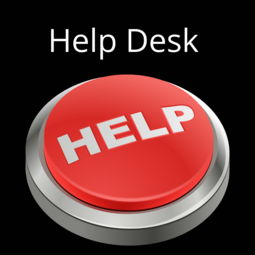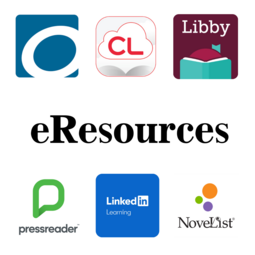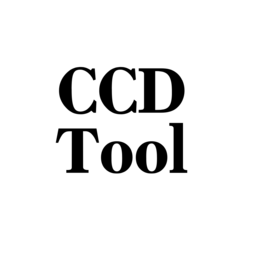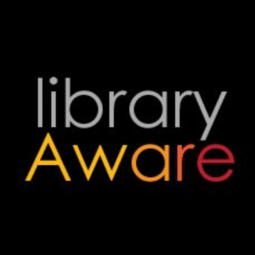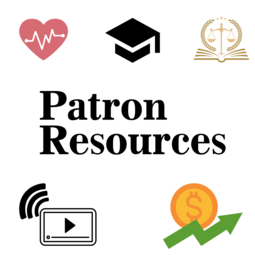Antiracism & Social Justice
These nonfiction titles will give you insight into the fight for a more just, antiracist future.
21 things you may not know about the Indian Act : helping Canadians make reconciliation with Indigenous Peoples a reality
Joseph, Robert P. C., 1963-, author
2018
All the white friends I couldn't keep : hope--and hard pills to swallow--about fighting for black lives
Henry, Andre (Musician), author
2022
Andre Henry was aggrieved to discover that many white Americans, people he called friends and family, were more interested in debating whether racism existed. Henry explores how the historical divides between Black people and non-Black people are expressed through our most mundane interactions, and why this struggle won't be resolved through civil discourse, diversity hires, interracial relationships, or education. What we need is a revolution, one that moves beyond symbolic progress to disrupt systems of racial violence and inequality in tangible, creative ways.
Antiracism as Daily Practice Refuse Shame, Change White Communities, and Help Create a Just World.
Harvey, Jennifer.
Full of real life stories, Jennifer Harvey shows how vital it is for white people to engage in and with our families, through our social networks, in our neighbourhoods, and at our jobs to make antiracism a daily living commitment. Dr. Harvey explains why we white people struggle with knowing what to do about racism, and explores the significance of emotions like grief and anger in really reckoning with the transformation and change needed in our communities to become the partners in justice that Black communities and other communities of colour need and deserve. Print run 60,000.
Beyond fragility : a skills-based guide to effective anti-racist allyship
Mekawi, Yara, author
2024
As society shifts its perspective on true allyship - moving from being "not racist" to "anti-racist" - the vast majority of resources on this topic emphasize educating allies about anti-racism without teaching them how to actually do anti-racism work. Filled with case examples, guided reflections, and skill-building exercises, this book provides you with the skills to understand and avoid common mishaps in anti-racist work. This book provides new skills that allow you to engage in impactful and sustainable allyship in every space you occupy.
Biased : uncovering the hidden prejudice that shapes what we see, think, and do
Eberhardt, Jennifer L. (Jennifer Lynn), author
2019
Bringing up race : how to raise a kind child in a prejudiced world
Asika, Uju, author.
2021
Asika draws on often shocking personal stories of prejudice along with opinions of experts, influencers, and fellow parents to give prescriptive advice in this ... guide. [It] explores when children start noticing ethnic differences (hint: much earlier than you think); what to do if your child says something racist (try not to freak out); how to have open, honest, age-appropriate conversations about race; how children and parents can handle racial bullying; how to recognize and challenge everyday racism, a.k.a. microaggressions.
Hood feminism : notes from the women that a movement forgot
Kendall, Mikki, author
2020
"A collection of essays taking aim at the legitimacy of the modern feminist movement, arguing that it has chronically failed to address the needs of all but a few women"-- Provided by publisher.
How to be an antiracist
Kendi, Ibram X., author
2019
"The only way to undo racism is to consistently identify and describe it -- and then dismantle it." Ibram X. Kendi's concept of antiracism reenergizes and reshapes the conversation about racial justice in America -- but even more fundamentally, points us toward liberating new ways of thinking about ourselves and each other. He asks us to think about what an antiracist society might look like, and how we can play an active role in building it.
How to be less stupid about race : on racism, White supremacy, and the racial divide
Fleming, Crystal Marie, 1981- author
2018
"How to Be Less Stupid About Race is your essential guide to breaking through the half-truths and ridiculous misconceptions that have thoroughly corrupted the way race is represented in the classroom, pop culture, media, and politics. Centuries after our nation was founded on genocide, settler colonialism, and slavery, many Americans are kinda-sorta-maybe waking up to the reality that our racial politics are (still) garbage. But in the midst of this reckoning, widespread denial and misunderstandings about race persist, even as white supremacy and racial injustice are more visible than ever before. Combining no-holds-barred social critique, humorous personal anecdotes, and analysis of the latest interdisciplinary scholarship on systemic racism, sociologist Crystal M. Fleming provides a fresh, accessible, and irreverent take on everything that's wrong with our "national conversation about race." Drawing upon critical race theory, as well as her own experiences as a queer black millennial college professor and researcher, Fleming unveils how systemic racism exposes us all to racial ignorance--and provides a road map for transforming our knowledge into concrete social change. Searing, sobering, and urgently needed, How to Be Less Stupid About Race is a truth bomb and call to action for everyone who wants to challenge white supremacy and intersectional oppression. If you like Issa Rae, Justin Simien, Angela Davis, and Morgan Jerkins, then this deeply relevant, bold, and incisive book is for you."-- Provided by publisher.
Indigenous Relations : insights, tips & suggestions to make reconciliation a reality
Joseph, Robert P. C., 1963- author
2019
Me and white supremacy : combat racism, change the world, and become a good ancestor
Saad, Layla F, author
2021
When Layla Saad began an Instagram challenge called #meandwhitesupremacy, she never predicted it would become a cultural movement. She encouraged people to own up and share their racist behaviors, big and small. She was looking for truth, and she got it... Thousands of people participated in the challenge, and over 80,000 people downloaded the supporting work Me and White Supremacy. Me and White Supremacy teaches readers how to dismantle the privilege within themselves so that they can stop (often unconsciously) inflicting damage on people of color, and in turn, help other white people do better, too.
Policing Black lives : state violence in Canada from slavery to the present
Maynard, Robyn, 1987-, author
2017
Seven fallen feathers : racism, death, and hard truths in a northern city
Talaga, Tanya, author
2017
Over the span of ten years, seven high school students died in Thunder Bay, Ontario. The seven were hundreds of miles away from their families, forced to leave their reserve because there was no high school there for them to attend. Tanya Talaga delves into the history of this northern city that has come to manifest, and struggle with, human rights violations past and present against aboriginal communities.
Shame on me : an anatomy of race and belonging
McWatt, Tessa, author
2020
Tessa McWatt has been judged not black enough by people who assume she straightens her hair. Now, through a close examination of her own body - nose, lips, hair, skin, eyes, ass, bones and blood - which holds up a mirror to the way culture reads all bodies, she asks why we persist in thinking in terms of race today when racism is killing us. This is a personal and powerful exploration of history and identity, colour and desire from a writer who, having been plagued with confusion about her race all her life, has at last found kinship and solidarity in story.
The skin we're in : a year of Black resistance and power
Cole, Desmond, 1982- author
2020
Both Desmond Cole's activism and journalism find vibrant expression in his first book - puncturing once and for all the bubble of Canadian smugness and naïve assumptions of a post-racial nation. Cole chronicles just one year - 2017 - in the struggle against racism in this country. In a month-by-month chronicle, Cole locates the deep cultural, historical, and political roots of each event so that what emerges is a personal, painful, and comprehensive picture of entrenched, systemic inequality.
So you want to talk about race
Oluo, Ijeoma, author
2018
Ijeoma Oluo offers a take on the racial landscape in America, addressing head-on issues such as privilege, police brutality, intersectionality, micro-aggressions, the Black Lives Matter movement, and the "N" word. Perfectly positioned to bridge the gap between people of color and white Americans struggling with race complexities, Oluo answers the questions readers don't dare ask, and explains the concepts that continue to elude everyday Americans.
Social justice parenting : how to raise compassionate, anti-racist, justice-minded kids in an unjust world
Baxley, Traci, author
2021
"A guide to raising anti-racist and socially conscious children"-- Provided by publisher.
Until we are free : reflections on Black Lives Matter in Canada
2020
"An anthology of writing addressing the most urgent issues facing the Black community in Canada. The killing of Trayvon Martin in 2012 by a white assailant inspired the Black Lives Matter movement, which quickly spread outside the borders of the United States. The movement's message found fertile ground in Canada, where Black activists speak of generations of injustice and continue the work of the Black liberators who have come before them. Until We Are Free contains some of the very best African-Canadian writing on the hottest issues facing the Black community in Canada. It describes the latest developments in Canadian Black activism, organizing efforts through the use of social media, Black-Indigenous alliances, and more. Rodney Diverlus is a Port-au-Prince-born, Toronto-based dance artist, curator, and co-founder of Black Lives Matter Toronto. Sandy Hudson is the founder of the Black Lives Matter movement presence in Canada and Black Lives Matter--Toronto and a co-founder of Black Liberation Collective Canada. Syrus Marcus Ware is a core team member of Black Lives Matter Toronto, a Vanier Scholar, a facilitator and designer for the CulturalLeaders Lab, and an award-winning artist and educator. Contributors Silvia Argentina Arauz, Leanne Betasamosake Simpson, Patrisse Cullors, Giselle Dias, Omisoore Dryden, Paige Galette, Dana Inkster, Sarah Jama, El Jones, Anique Jordan, Dr. Naila Keleta Mae, Janaya Khan, Gilary Massa, Robyn Maynard, Leroi Newbold, QueenTite Opaleke, Randolph Riley, Camille Turner, Ravyn Wngz."-- Provided by publisher.
Warrior life : Indigenous resistance & resurgence
Palmater, Pamela D. (Pamela Doris), 1970- author
2020
This is the second collection of writings, Pamela Palmater addresses a range of Indigenous issues - empty political promises, ongoing racism, sexualized genocide, government lawlessness, and the lie that is reconciliation - and makes the complex political and legal implications accessible to the public. This is an unflinching critique of the colonial project that is Canada and a rallying cry for Indigenous peoples and allies alike to forge a path toward a decolonial future through resistance and resurgence.
Why does everything have to be about race? : 25 arguments that won't go away
Boykin, Keith, author
2024
"The Civil War was about states' rights, not slavery!" "If you don't like it here, you should go back to Africa." "What about Black-on-Black crime?" "You're just playing the race card." There's a whole arsenal of popular "gotchas" that crop up again and again in discussions about race in America. According to the people who use them, Critical Race Theory is a dangerous threat that promotes racial hatred, and affirmative action is reverse discrimination. At the same time, they insist that racism ended with the Obama presidency, and Black people should be grateful for the privilege of living in the United States. In Why Does Everything Have to Be About Race? Keith Boykin sets the record straight, explaining why such all-too-common assertions are simply not true. Effortlessly combining history, pop culture, and stories from his own life, Boykin lays out the truth about anti-Black racism and white supremacy in America. Racist lies and misbeliefs just don't seem to go away-but with the help of this book, they also won't go unchallenged"-- Provided by publisher.
Why I'm no longer talking to white people about race
Eddo-Lodge, Reni, author
2017
"In 2014, award-winning journalist Reni Eddo-Lodge wrote about her frustration with the way that discussions of race and racism in Britain were being led by those who weren't affected by it. She posted a piece on her blog, entitled: 'Why I'm No Longer Talking to White People About Race'. Her words hit a nerve. The post went viral and comments flooded in from others desperate to speak up about their own experiences. Galvanised by this clear hunger for open discussion, she decided to dig into the source of these feelings. The result is a searing, illuminating, absolutely necessary examination of what it is to be a person of colour in Britain today. Exploring issues from eradicated black history to the political purpose of white dominance, whitewashed feminism to the inextricable link between class and race, Reni Eddo-Lodge offers a new framework for how to see, acknowledge and counter racism today. Full of clear, bold and keenly felt arguments, [this book] is a wake-up call to a nation in denial about the structural and institutional racism occurring at its heart. It is a timely, essential book by a vital new voice."--Publisher.











